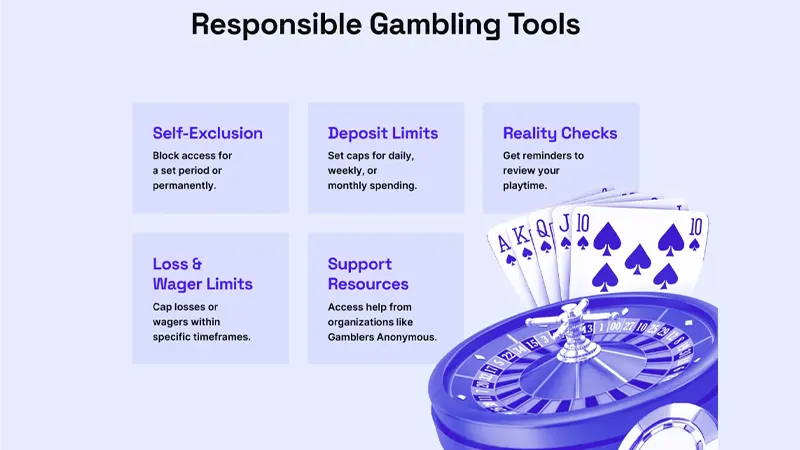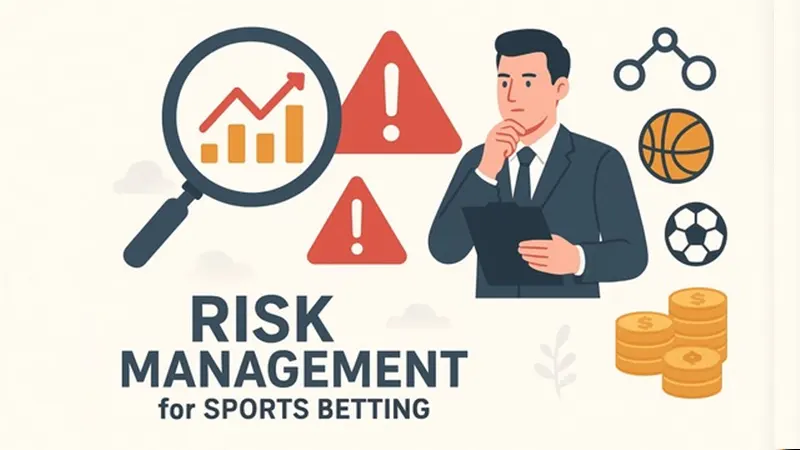The vast majority of players who experience significant gambling losses don’t fail because they chose the wrong games or lacked winning strategies. They lose because they don’t know when to stop. This fundamental truth underlies one of the most important concepts in responsible gambling: setting and maintaining personal betting limits.
Personal gambling limits serve as a protective barrier between entertainment and financial disaster. They help control emotions, protect finances, and ensure that gambling remains a form of entertainment rather than a source of stress or financial hardship. These limits act as predetermined decision points that remove emotion from critical moments when players might otherwise make poor choices.
At 82 Lottery, we’ve observed that players who establish clear, written limits before they begin gambling consistently have better experiences and maintain healthier relationships with gaming. Conversely, those who gamble without predetermined boundaries often find themselves in situations they never intended to reach, having spent more time and money than they could afford.
What Are Personal Gambling Limits?
Personal gambling limits are predetermined boundaries that players establish before they begin gambling. These limits define the maximum amount of money, time, or emotional investment a player is willing to commit to gambling activities. They serve as automatic stopping points that help prevent impulsive decisions during the heat of gaming sessions.
Effective gambling limits encompass three main categories: loss limits (the maximum amount you’re willing to lose), win limits (the point at which you’ll stop playing despite feeling successful), and time limits (how long you’ll spend gambling). Each type serves a specific purpose in maintaining control over your gambling behavior.
The primary goal of these limits is to prevent common gambling pitfalls such as playing too long, chasing losses, or becoming greedy after wins. By establishing these boundaries in advance, players can make rational decisions about their gambling behavior when they’re thinking clearly, rather than in the midst of emotional highs and lows.
These limits should be viewed as non-negotiable rules rather than flexible guidelines. Once established, they should be treated with the same seriousness as any other financial commitment or personal rule that protects your well-being.
When Should You Stop?
When You Reach Your Win Target
One of the most difficult but crucial times to stop gambling is when you’re winning. Setting a win limit – such as stopping when you’ve profited 30% of your initial bankroll – helps protect your winnings before variance can take them back. This might seem counterintuitive when you’re on a winning streak, but it’s one of the most effective ways to maintain long-term profitability.
The temptation to continue playing when winning is enormous because success breeds confidence and excitement. However, understanding that winning streaks are temporary and that the house edge will eventually assert itself helps rational players recognize when to walk away with their profits intact.
When You Hit Your Loss Limit
Equally important is stopping when you reach your predetermined loss limit. For example, if you’ve decided that losing 20% of your bankroll is your maximum acceptable loss, you must stop playing when you reach that point, regardless of how you feel about your chances of recovery.

This is often the most challenging limit to enforce because it requires accepting defeat and the accompanying negative emotions. However, stopping at your loss limit prevents small losses from becoming catastrophic ones and protects your financial stability for future gaming sessions.
When You Lose Emotional Control
Perhaps the most important time to stop gambling is when you notice that your emotions are taking control of your decision-making. Signs include feeling frustrated, angry, or desperate, or finding yourself increasing bet sizes without rational justification. These emotional states cloud judgment and lead to poor decisions that can quickly escalate losses.
Never gamble when you’re emotionally distressed, under the influence of alcohol or drugs, or trying to escape from personal problems. These conditions impair your ability to make rational decisions and stick to your predetermined limits.
When Your Time Limit Expires
Time limits are often overlooked but equally important. Setting a maximum session length – such as one hour per gaming session – helps prevent the gradual erosion of judgment that comes with extended play. Fatigue, both mental and emotional, can significantly impact decision-making quality.
The phrase “just a few more hands” or “one more spin” has led to countless extended sessions that result in significant losses. By establishing firm time limits and sticking to them, players can avoid this common trap.
How to Set Effective Gambling Limits
Determine Your Affordable Loss Amount
The foundation of effective limit setting is determining how much money you can afford to lose without impacting your lifestyle, responsibilities, or financial security. This amount should come from your entertainment budget, not from money earmarked for necessities like rent, food, or savings.
Consider this money as already spent, similar to buying a movie ticket or dining out. This mental framework helps maintain perspective and reduces the emotional impact of losses when they occur.
Set Reasonable Win and Loss Limits
Your win and loss limits should be proportional to your bankroll and realistic given the games you play. Setting limits that are too ambitious (such as trying to double your money) makes them difficult to achieve and maintain. More modest targets, such as winning 20-30% or losing 10-20% of your bankroll, are more practical and sustainable.
The key is making these limits achievable enough that you’ll actually reach them during typical gaming sessions, rather than setting them so high that they become meaningless.
Establish Time Boundaries
Time limits help prevent the gradual erosion of judgment that comes with extended gambling sessions. Consider setting daily limits (such as 1-2 hours maximum) and weekly limits (such as no more than 3 gambling sessions per week). These boundaries help ensure that gambling remains a minor part of your life rather than a central focus.
Write Down Your Limits and Enforce Them
Mental limits are easy to rationalize away in the heat of the moment. Writing down your limits and referring to them regularly makes them more concrete and harder to ignore. Consider setting phone reminders or using apps that track your gambling activity and alert you when you approach your limits.

Real Experience from 82 Lottery
Our observations at 82 Lottery have consistently shown that successful players share common characteristics: they achieve modest wins, withdraw their profits, and stop playing early. These players understand that small, consistent wins are more valuable than chasing large jackpots that may never materialize.
Conversely, players who experience significant losses typically exhibit predictable patterns: they want “just a little more” when winning or try to “get even” when losing. These seemingly innocent thoughts often lead to extended sessions that result in substantial losses.
We’ve found that players who treat their limits as non-negotiable rules, similar to speed limits or other safety regulations, have the most success in maintaining control over their gambling behavior. They understand that these limits exist to protect them, not to limit their enjoyment.
The most successful players also recognize that Personal Gambling Limits are not signs of weakness but demonstrations of strength and self-awareness. They understand that discipline and self-control are more valuable than any betting strategy or insider knowledge.
Tools to Support Limit Setting
Modern gambling platforms offer various tools to help players maintain their limits. Many online casinos provide “Set Limit” features that allow players to establish deposit limits, loss limits, and session time limits directly through their accounts. These tools can automatically enforce your limits even when emotions might tempt you to override them.
Smartphone apps can also be valuable allies in maintaining gambling discipline. Timer apps can alert you when your predetermined session time is up, while budgeting apps can help you track your gambling expenses and ensure they stay within your entertainment budget.
Some players find it helpful to have a trusted friend or family member who can provide accountability and support in maintaining their limits. This external accountability can be particularly valuable during difficult moments when emotions are running high.
Mindset for Maintaining Limits
Successful limit maintenance requires the right psychological approach. First and foremost, you must understand that gambling is entertainment, not a career or investment opportunity. This mindset helps maintain perspective and reduces the emotional stakes involved in winning and losing.
Stopping play when you reach your limits isn’t cowardice – it’s intelligent risk management. Professional investors, athletes, and business people all use predetermined stopping points to protect their interests. Gambling should be no different.

Always consider the consequences of breaking your limits before you’re tempted to do so. What would happen to your finances, relationships, and peace of mind if you continued playing beyond your predetermined boundaries? This forward-thinking approach can help you make better decisions in crucial moments.
Professional Advice from 82 Lottery
One of the most important principles we emphasize is that you should stop when you’re winning, not just when you’re losing. Many players only think about stopping when they’re behind, but protecting profits is equally important. When you reach your win limit, withdraw your profits immediately rather than continuing to play.
Taking breaks after reaching your loss limit is crucial for maintaining perspective and preventing emotional decision-making. We recommend waiting at least 24-48 hours after hitting your loss limit before gambling again. This cooling-off period allows emotions to settle and rational thinking to return.
Remember that limits are meant to protect you over the long term, not to maximize short-term excitement. Players who consistently follow their limits may have fewer dramatic stories to tell, but they also have healthier bank accounts and more sustainable gambling habits.
The Foundation of Responsible Gambling
Personal gambling limits serve as protective barriers around your finances and emotional well-being. Without these boundaries, gambling decisions become driven by emotion rather than reason, leading to outcomes that players never intended to reach.
The absence of limits makes players vulnerable to the natural psychological traps inherent in gambling: the desire to chase losses, the temptation to extend winning streaks, and the gradual erosion of judgment that comes with extended play. These limits provide predetermined decision points that remove emotion from critical moments.
At 82 Lottery, we strongly recommend that every player establish comprehensive limits before they begin gambling. These limits should cover loss amounts, win targets, and time boundaries. More importantly, they should be treated as non-negotiable rules that protect your long-term interests.
Remember that gambling should enhance your life as entertainment, not detract from it as a source of stress or financial hardship. Proper limits help ensure that gambling remains in its proper place – as a minor, enjoyable part of a balanced lifestyle rather than a central focus that dominates your thoughts and resources.


